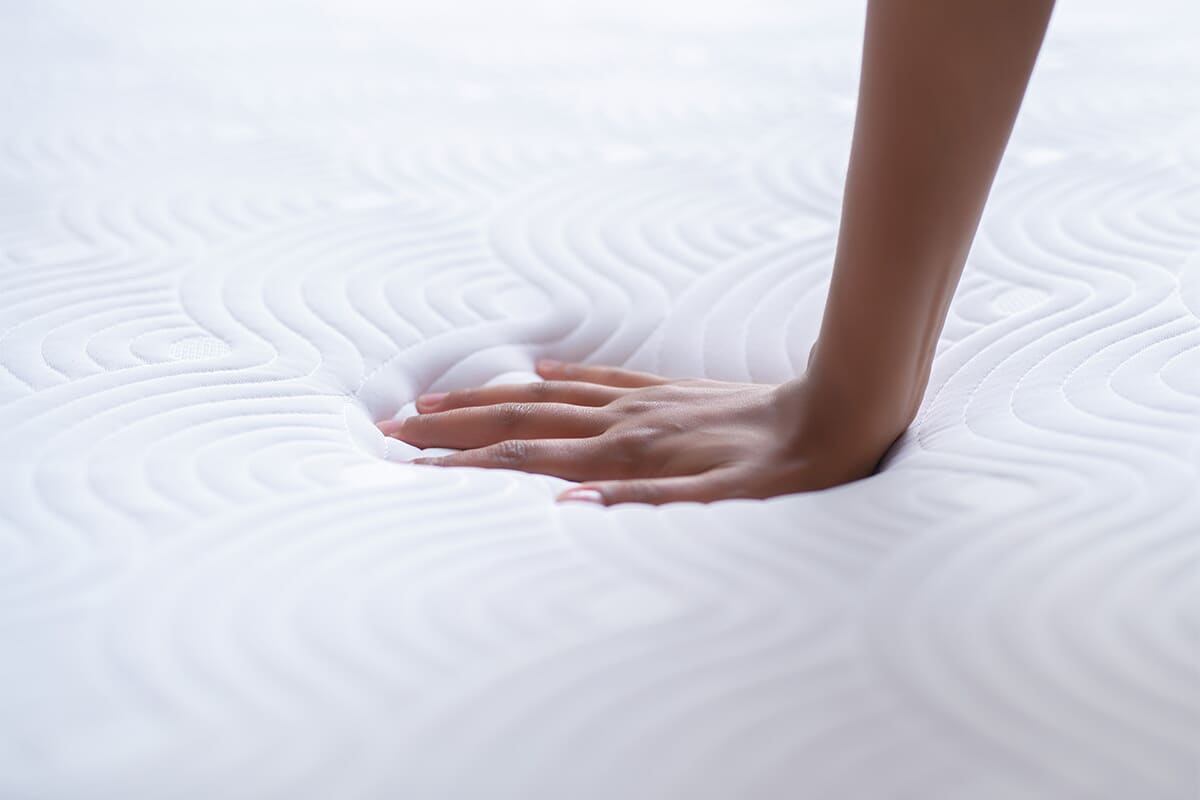Last updated: January 2026
How To Soften Memory Foam Pillows And Mattresses
How to soften your memory foam mattress or pillow if it's feeling a bit too firm.
We love memory foam mattresses for how well they mould to your body when you’re sleeping, giving you the best levels of support and comfort. But what you might not expect from your brand-new memory foam mattress is that it can be quite firm to begin with. Memory foam does soften over time, but if you learn some of our top tips, you can speed up the process a little.

What makes memory foam mattresses feel hard?
Like it says on the tin, memory foam mattresses and pillows are made from a special type of foam consisting mainly of polyurethane, with additional chemicals that increase its viscosity and density. Our guide on memory foam thickness and density will give you a better idea of what makes memory foam feel hard to begin with, as well as what thickness and density are right for you!
Does memory foam soften over time?
Your memory foam mattress may not feel as soft as the mattresses you tried out in shops, or what you expected from the descriptions you read online when you were looking to purchase a new one, but don’t worry! Most memory foam mattresses will get softer over time, usually about two to four weeks. In fact, our memory foam mattress buying guide has all the information you need if you’re in the business of buying a new bed soon and want some more guidance on whether memory foam will be the right pick for you.
How to make a memory foam mattress softer
There are three ways you can make your memory foam mattress softer, quicker:
- Using heat
- Using pressure
- Using patience
Will my memory foam mattress get softer if I use heat?
Using heat is a great way to get the materials inside the memory foam to relax and become spongier. You can do this by using your body heat and trying to lie on your mattress as often as possible – maybe have a few movie nights with the family or buy one when you’re next due some time off work so you can have some lazy days in bed!
However, if you don’t have time on your side, then you could try these fixes:
- Turn up the heat in your bedroom – making the room a little warmer will soften the foam and allow it to form around your body more easily.
- Use alternative heat sources, like hot water bottles, to warm the mattress before rolling or kneading it, then sleeping on it. However, it's important you don't put hot items directly on the memory foam, as it can warp the shape. For example, you should never use an electric blanket on a memory foam mattress.



Will my memory foam mattress get softer if I use pressure?
If you apply enough pressure to memory foam it will eventually become softer – how quickly will depend on how often you are applying pressure and how much pressure you apply! Lying on it every night will help a lot, as will regularly walking or rolling on it. Memory foam normally takes between a couple of days and a couple of weeks to break in, so you can speed up the process by being active on your bed as much as possible.
Should I just be patient?
You can also adopt the final tip – use some patience! Your mattress won’t stay hard forever, so if you persevere through the first couple of weeks, you’ll find that your memory foam mattress softens pretty quickly.
Mattress toppers are ideal for amending the firmness of your mattress, so if you find your mattress is a little too firm, you may be tempted to choose a soft memory foam topper, which will help your body sink in and benefit from better pressure relief.
However, just bear in mind that using a mattress topper when your mattress first arrives will potentially mean it takes longer for the mattress to mould to your shape and soften! For more information, read our guide to Preparing and Caring For Your Memory Foam Mattress.

How to soften a memory foam pillow
Similar to a memory foam mattress, you can soften a memory foam pillow by applying heat and pressure and having a little patience. This is a little easier with something small like a pillow, though. You can put your pillow in the tumble dryer to let the gentle heat penetrate the foam and fluff it up. You could also make sure you take your pillow around the house with you throughout the day, so it stays warm all day and becomes more pliant.
If you don’t fancy the necessary wait for your memory foam mattress to soften, you could always opt for a different mattress – we have so many to pick from you’re spoiled for choice! We would recommend a pocket sprung mattress for comfort straight out of the box, and our hybrid mattresses are the best of both worlds, combining the best bits of both mattress types.

